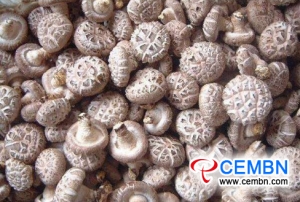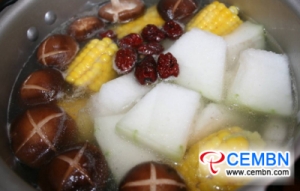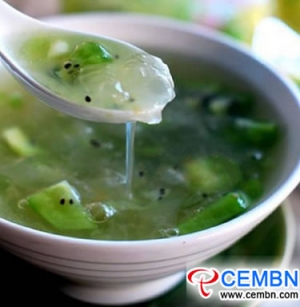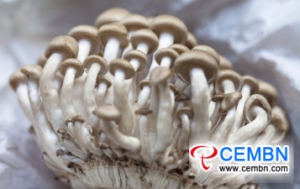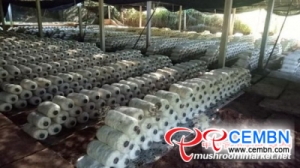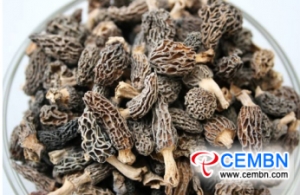
Mushroom Matter
Welcome on our platform. Why MUSHROOM MATTER? Because mushrooms play an important role in our lives as well in business. Our goal is to bring the world the very latest mushroom news with the upmost care to support the positioning of our beloved Mushroom.
Mushroom industry is in rapid development trend
By virtues of natural endowments of regional position, climatic condition and advantaged resources for mushroom cultivation, Shuangyashan City, Heilongjiang Province of China has been comprehensively promoting mushroom industry to move from production mode to integration of manufacturing and marketing, till now, 8 typical mushroom greenhouses have been developed in the city.
This year, area of mushroom cultivation totals 3273 mu in Shuangyashan City and 1587 mushroom greenhouses are in fierce production, by the end of this year, the estimated output value obtains 143 million CNY, mushroom varieties include Shiitake, Flower mushroom, Black fungus, Nameko and others, products enjoy good markets in Beijing City, Shandong Province, Zhejiang Province and other main regions in China.
According to quotation provided by Xijiao International Agricultural Products Transaction Center in Shanghai City of China, by October 12th, Enoki mushroom, Hypsizygus marmoreus, White beech mushroom and Pleurotus geesteranus are 4 varieties that show price fall.
1. The price of Enoki mushroom has been dropped from 8 to 7.5 CNY per kg, showing 6 % of dropping range.
2. The price of Hypsizygus marmoreus has been dropped from 15 to 12 CNY per kg, showing 20% of dropping range.
3. The price of White beech mushroom has been dropped from 14.4 to 13 CNY per kg, showing 10% of dropping range.
4. The price of Pleurotus geesteranus has been dropped from 15 to 12 CNY per kg, showing 20% of dropping range.
On the contrary, by October 12th, Shiitake, Straw mushroom, Agrocybe cylindracea and Seafood mushroom are 4 varieties that show price rise.
1. The price of Shiitake has been risen from 15 to 17 CNY per kg, indicating 13% of increase range.
2. The price of Straw mushroom has been risen from 18 to 24 CNY per kg, indicating 33% of increase range.
3. The price of Agrocybe cylindracea has been risen from 12 to 16 CNY per kg, indicating 33% of increase range.
4. The price of Seafood mushroom has been risen from 10 to 11 CNY per kg, indicating 10% of increase range.
The market price of King oyster mushroom is relatively stable, now it is at 8 CNY per kg.
CEMBN: Wanna know more about mushroom quotation or mushroom news as well as something new about China’s mushroom industry? Please continue to focus on us.
For recent years, Chinese mushroom industry has been gradually evolving into the fifth industry that goes after Grain, Vegetable, Fruit and Oil. Mushroom industry is also hailed as the prosperous industry that facilitates turning waste into wealth as well as an effective means for poverty removal.
In Huasitang Village, Sichuan Province of China, mushroom industry is increasingly becoming fierce.
In one of local mushroom gardens, there are 8 high-standard heat-preservation mushroom greenhouses that cover over 1600 square meters, now, annual mushroom output has obtained nearly 1 million bags in Huasitang Village.
For years, Baiyun District, Guiyang City, Guizhou Province of China has been accelerating the transformation and upgrading of traditional agriculture. In aspect of characteristic industry, the district has introduced agricultural sightseeing gardens and built 3 mushroom greenhouses. In line with three-dimensional ecological technology cultivation mode, indoor area of Morel cultivation has been expanded to 2000 square meters. At present, annual production and sales volume on mushroom strain comes to 10 million CNY.
1. During the fruiting period, mushroom farmers should be careful with the employment of pesticides. It is prohibited to bring pesticides into contact with mushrooms or it may cause food contamination.
2. When you find that mushrooms distribute on fungus bed, be sure not to apply any pesticides that hold strong toxicity, pungent odour and long residual period.
3. When controlling diseases and pests, be sure to choose agents in accordance with various targets. For instance, DDVP holds fumigation and touch-out efficacy, it shows special effect to adult flies and springtails while manifesting poor killing-ability to mites. Octyl mercaptan refers to a kind of high-efficient, low-toxic, low-residual and organic phosphorus pesticide, in addition to showing special effect to springtails and flies, it is also efficient in killing mites.
4. Try to choose vegetative pesticides and microecologics such as Pyrethrum.
5. Protect the natural enemies and do not abuse chemical pesticides.














